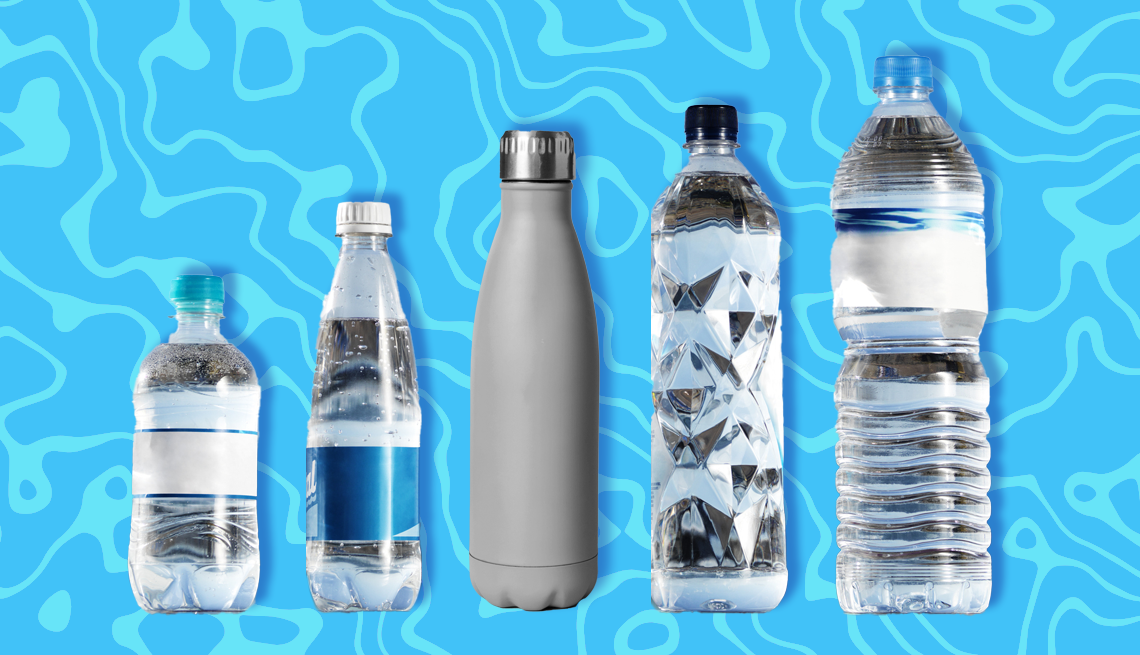“The body does a great job of keeping our pH within a very tightly controlled range. Even if we consume more alkaline water, our pH will never rise above the normal range,” says Kidney. says Jen Hernandez, a registered dietitian who specializes in helping people with illnesses.
Some people have suggested that drinking alkaline water may help people suffering from GERD, but Hernandez is skeptical.
“It’s almost counterintuitive to add this kind of water to a very acidic environment, such as the stomach, which is supposed to be producing acid to aid in digestion and breaking down food,” Hernandez says.
4. Water with vitamins
Some manufacturers fortify their water with vitamins. This water usually comes in either sugar-sweetened or unsweetened varieties. Some brands have up to 27 grams of added sugar (50 to 100 percent of the recommended daily limit) in a 20 fluid ounce bottle, so those watching the sugar content should check the label. you need to check. Sugar-free options use stevia, monk fruit, or artificial sweeteners.
Vitamin-infused water may contain more than 100 percent of the daily recommended amount of B vitamins and vitamin C. These are water-soluble vitamins, so excess vitamins are excreted by the kidneys in the urine.
“So you’re paying for urine, which is expensive at that point. … Your body is going to say, ‘I don’t need this amount,'” Hernandez says. “Getting your vitamins from food is ideal because they provide many other benefits and nutrients.”
5. Electrolyzed water
Sports drinks are for athletes who lose large amounts of fluid and electrolytes through sweating. Such drinks are often not necessary for moderately active or sedentary people. Electrolyzed water may be beneficial in the short term under certain circumstances, such as during prolonged exercise, prolonged exposure to heat, or illness with vomiting or diarrhea. Experts say regular water is usually sufficient to meet your hydration needs during moderate exercise.
6. Hydrogen water
Hydrogen water is ordinary water with hydrogen gas added to it. You can buy water with hydrogen in it, or you can buy hydrogen tablets and add them to your water at home.
Hydrogen water is gaining attention due to its potential health benefits. 2024 Review of research In addition to improving physical endurance, it was found that it may have antioxidant and anti-inflammatory properties. Most studies are small and studies are mixed. More rigorous studies are needed to confirm the benefits.
7. Purified water
Regular bottled water is not simply tap water in a bottle, although some bottled water comes from municipal water sources. According to the law, to be labeled as “purified,” water must enter a production plant and undergo processes such as distillation, deionization, and reverse osmosis. International Bottled Water Association. They are then sold in individual, hygienic, airtight containers.
Is one type better?
Most people get the electrolytes and minerals they need from food rather than from liquids. The amount contained in drinking water is relatively small and not enough to meet our dietary needs.
Is there a best water to drink every day? Some say that the right water is the one to drink. Many people enjoy the taste and convenience of bottled water and prefer it over tap water.
Purified, highly regulated, and readily available tap water, on the other hand, probably comes out of your kitchen faucet. Adding a household filter makes your tap water cost-effective and perfect for your daily drinking experience, without the toxins from plastic bottles.
Hernandez says keeping a pitcher of filtered tap water on your countertop where you can see it will help you stay hydrated.
Video: 5 signs of dehydration

